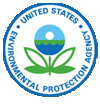
EPA Reduces Regulatory Burden for Industrial Facilities Using Solvent Wipes
Common-sense exclusion will save industry up to $27.8 million per year
The U.S. Environmental Protection Agency (EPA) modified the hazardous waste management regulations under the Resource Conservation and Recovery Act (RCRA) to conditionally exclude solvent-contaminated wipes from hazardous waste regulations provided that businesses clean or dispose of them properly. The rule is based on EPA's final risk analysis, which was peer reviewed in 2008 and published for public comment in 2009, that concluded wipes contaminated with certain hazardous solvents do not pose significant risk to human health and the environment when managed properly. EPA estimates that the final rule will result in a net savings of between $21.7 million and $27.8 million per year.
Wipes are used in conjunction with solvents for cleaning and other purposes by tens of thousands of facilities in numerous industrial sectors, such as printers, automobile repair shops and manufacturers of automobiles, electronics, furniture and chemicals.
"Today's rule uses the latest science to provide a regulatory framework for managing solvent-contaminated wipes that is appropriate to the level of risk posed by these materials," said Mathy Stanislaus, assistant administrator for EPA's Office of Solid Waste and Emergency Response. "I've heard directly from stakeholders about the benefits of this rule and the need to finalize it. The rule reduces costs for thousands of businesses, many of which are small businesses, while maintaining protection of human health and the environment."
Today's final rule excludes wipes that are contaminated with solvents listed as hazardous wastes under RCRA that are cleaned or disposed of properly. To be excluded, solvent-contaminated wipes must be managed in closed, labeled containers and cannot contain free liquids when sent for cleaning or disposal. Additionally, facilities that generate solvent-contaminated wipes must comply with certain recordkeeping requirements and may not accumulate wipes for longer than 180 days.
EPA estimates that the final rule will result in a net savings of $18 million per year in avoided regulatory costs and between $3.7 million and $9.9 million per year in other expected benefits, including pollution prevention, waste minimization and fire prevention benefits.
This rule is consistent with President Obama's Executive Order 13563, Improving Regulation and Regulatory Review, which charges federal agencies to monitor regulatory effectiveness and to help make agency regulatory programs more effective or less burdensome in achieving the regulatory objectives.
EPA first proposed modified regulations for solvent-contaminated wipes on November 20, 2003, and published a revised risk assessment for public comment on October 27, 2009. The docket for this rulemaking is EPA-HQ-RCRA-2003-0004 and can be accessed at http://www.regulations.gov once the final rule is published.
More information about this rulemaking: http://www.epa.gov/epawaste/hazard/wastetypes/wasteid/solvents/wipes.htm
